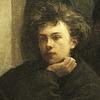Take a photo of a barcode or cover
This is an essay written by George Orwell, recounting his experience as a British colonial police officer in Burma (now Myanmar). Published in 1936, this essay reflects Orwell's philosophical stance on imperialism, power dynamics, and the moral dilemmas faced in a colonial context.
George Orwell was known for his critical stance against authoritarianism, imperialism, and social injustices. He believed in the importance of individual freedom and integrity while highlighting the oppressive nature of institutionalised power structures.
In this essay, he reflects on an incident where he was compelled to shoot and kill an elephant to appease a crowd's expectations, despite feeling morally conflicted about the act. Orwell grapples with the pressures of his role as a representative of British authority and the expectations of the local Burmese population. The act of shooting the elephant becomes a metaphor for the oppressive nature of imperialism and the loss of agency forced upon both the colonised and the coloniser.
Its themes resonate far beyond its specific historical context, touching on universal themes of power, conscience, and the human condition.
But the act of shooting the elephant, though presented as a moral dilemma, is still depicted as a moment of personal weakness and internal conflict for Orwell- I do not believe that this fully confronts the ethical implications of his actions as a representative of British colonial authority.
The essay's portrayal of the colonial experience is solely from the perspective of the coloniser. The narrative lacks the voices and perspectives of the Burmese people who were under British rule. This one-sided portrayal limits a comprehensive understanding of the impact of imperialism on the colonised population- with potential insensitivity or oversimplification of the Burmese people's experiences. Orwell's representation of the local population, reinforce stereotypes and overlook the complexities of their lives under colonial rule.
While the essay continues to be praised for its thought-provoking exploration of colonialism and power dynamics, it should also invite critical examination and discussion regarding its portrayal of moral conflict and the colonial experience.
George Orwell was known for his critical stance against authoritarianism, imperialism, and social injustices. He believed in the importance of individual freedom and integrity while highlighting the oppressive nature of institutionalised power structures.
In this essay, he reflects on an incident where he was compelled to shoot and kill an elephant to appease a crowd's expectations, despite feeling morally conflicted about the act. Orwell grapples with the pressures of his role as a representative of British authority and the expectations of the local Burmese population. The act of shooting the elephant becomes a metaphor for the oppressive nature of imperialism and the loss of agency forced upon both the colonised and the coloniser.
Its themes resonate far beyond its specific historical context, touching on universal themes of power, conscience, and the human condition.
But the act of shooting the elephant, though presented as a moral dilemma, is still depicted as a moment of personal weakness and internal conflict for Orwell- I do not believe that this fully confronts the ethical implications of his actions as a representative of British colonial authority.
The essay's portrayal of the colonial experience is solely from the perspective of the coloniser. The narrative lacks the voices and perspectives of the Burmese people who were under British rule. This one-sided portrayal limits a comprehensive understanding of the impact of imperialism on the colonised population- with potential insensitivity or oversimplification of the Burmese people's experiences. Orwell's representation of the local population, reinforce stereotypes and overlook the complexities of their lives under colonial rule.
While the essay continues to be praised for its thought-provoking exploration of colonialism and power dynamics, it should also invite critical examination and discussion regarding its portrayal of moral conflict and the colonial experience.
informative
reflective
slow-paced
love how orwell's essays are in narrative form. this one was so good that even Nick Cave was inspired
called upon to shoot an aggressive elephant while working as a police officer in Burma. Because the locals expect him to do the job, he does so against his better judgment, his anguish increased by the elephant's slow and painful death.
metaphor for colonialism as a whole, and for Orwell's view that "when the white man turns tyrant it is his own freedom that he destroys."
he shot it "solely to avoid looking a fool"
An anti-imperialist writer, Orwell promoted the idea that through imperialism, both conqueror and conquered were destroyed.[6] Orwell clearly states his displeasure with the British Empire: "I had already made up my mind that imperialism was an evil thing.... I was all for the Burmese and all against their oppressors, the British".[2] The narrator perceives that the conqueror is not in control, but it is rather the will of the conquered that governs his actions. As ruler, he notes that it is his duty to appear resolute, with his word being final:
metaphor for colonialism as a whole, and for Orwell's view that "when the white man turns tyrant it is his own freedom that he destroys."
he shot it "solely to avoid looking a fool"
An anti-imperialist writer, Orwell promoted the idea that through imperialism, both conqueror and conquered were destroyed.[6] Orwell clearly states his displeasure with the British Empire: "I had already made up my mind that imperialism was an evil thing.... I was all for the Burmese and all against their oppressors, the British".[2] The narrator perceives that the conqueror is not in control, but it is rather the will of the conquered that governs his actions. As ruler, he notes that it is his duty to appear resolute, with his word being final:
reflective
relaxing
Graphic: Animal cruelty, Animal death
Moderate: Child abuse
dark
emotional
reflective
medium-paced
One of the greatest things I’ve ever read. I reflect on this on a daily basis.
5 stars. if not solely for some thoughts on the common toad (everyone and their mother go read that essay), then for the fact that this collection reminded me why i love george orwell and his writing <33
informative
reflective
medium-paced
Moderate: Animal death, Racism
emotional
reflective
medium-paced
challenging
hopeful
informative
reflective
slow-paced
‘Shooting an Elephant’ is a collection of Orwell’s essays, each with different topics and tones so I have summarised and reviewed each individually, yet my star rating is overall.
The opening essay ‘Shooting an Elephant’ describes him having to kill a rampaging elephant during his time as a police officer in Burma, a criticism of British Imperialism and how he loathed it despite working for the system of of it and also a look at the racism he faced when working there, despite he and the British being the colonisers. It is an unexpected angle to explore a criticism of colonialism.
‘The Spike’ was a recount of a night in the spike, less interesting to me as I have read ‘Down and out in London and Paris’ and it seemed to just be a passage from that, though I don’t believe it was. Orwell described the wasted time, the wasted food for principe and the grim conditions, and then when his night came to a close, headed to find the next spike and start it all over again.
Why I Write is an essay on what Orwell sees as the reason for writing. He first explores his early poetry and short stories of childhood, and how Burmese Days was written with desire for an unhappy ending and purple prose. The 4 reasons for writing were then outlined: selfish motives, to perceive the worlds beauty, historical impulse or political motive. Pre-Spanish civil war Orwell noted his writing embodied the first three, but after 1936 all his writings existed to speak against totalitarianism, to expose a lie and that writing would be better what the author was conscious of the political bias and weave the creative with the political, as he noted with Animal Farm. He references that he wants to write another book, and it will be a failure though he will still write it as he has desire and purpose. This future book wasn’t a failure, it was 1984, the greatest piece of literature ever written in my opinion and of what I have read before.
Politics and the English Language was a fascinating essay on the decay of language, how it is watered down with big meaningless words and metaphors and that bad language creates bad thought and creates worse language. It discusses the principles for good and bad writing and crucially how bad writing allows political writing to make lies appear truthful. This idea of the decay and propaganda of language shines through in 1984.
'In Defence of English Cooking' is a short essay claiming that the foreigners who claim English cooking to be the worse cuisine don't experience English cuisine because they eat in the pubs and restaurants, and the true beauty of our food is that cooked in the home, in the lower class households, the deserts and Yorkshire puddings and breads.
The longest part of the collection is 'Such such were the joys' which recounts Orwell's school days at St Cypriens, the abuse he faced at the hands of his teachers Sambo and Flip for simply being of a lower class because his scholarships meant they were investing into him. Orwell did not idolise those days and critiques the private education system. Thought as a whole, despite its longer length and deeper exploration of the topic I didn't care much for this essay.
The best essay in my opinion was by far the short ‘Some thoughts on the common toad' which describes how the toad is the first sign of spring, that nature is inevitable despite the efforts of the world to destroy it in context of 1940, and the closing line is so beautiful. “The atom bombs are piling up in the factories, the police are prowling through the cities, the lies are streaming from the loudspeakers, but the earth is still going round the sun, and neither the dictators nor the bureaucrats, deeply as they disapprove of the process, are able to prevent it.” It was so bleak yet hopeful and all symbolised through the toad, such an ugly and unconventional sign of spring, yet even there beauty is found.







